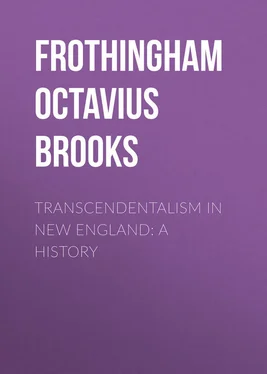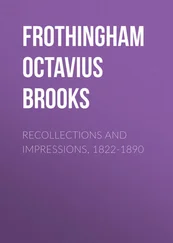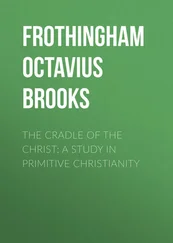Octavius Frothingham - Transcendentalism in New England - A History
Здесь есть возможность читать онлайн «Octavius Frothingham - Transcendentalism in New England - A History» — ознакомительный отрывок электронной книги совершенно бесплатно, а после прочтения отрывка купить полную версию. В некоторых случаях можно слушать аудио, скачать через торрент в формате fb2 и присутствует краткое содержание. Жанр: foreign_antique, foreign_prose, на английском языке. Описание произведения, (предисловие) а так же отзывы посетителей доступны на портале библиотеки ЛибКат.
- Название:Transcendentalism in New England: A History
- Автор:
- Жанр:
- Год:неизвестен
- ISBN:нет данных
- Рейтинг книги:4 / 5. Голосов: 1
-
Избранное:Добавить в избранное
- Отзывы:
-
Ваша оценка:
- 80
- 1
- 2
- 3
- 4
- 5
Transcendentalism in New England: A History: краткое содержание, описание и аннотация
Предлагаем к чтению аннотацию, описание, краткое содержание или предисловие (зависит от того, что написал сам автор книги «Transcendentalism in New England: A History»). Если вы не нашли необходимую информацию о книге — напишите в комментариях, мы постараемся отыскать её.
Transcendentalism in New England: A History — читать онлайн ознакомительный отрывок
Ниже представлен текст книги, разбитый по страницам. Система сохранения места последней прочитанной страницы, позволяет с удобством читать онлайн бесплатно книгу «Transcendentalism in New England: A History», без необходимости каждый раз заново искать на чём Вы остановились. Поставьте закладку, и сможете в любой момент перейти на страницу, на которой закончили чтение.
Интервал:
Закладка:
Octavius Brooks Frothingham
Transcendentalism in New England: A History
PREFACE
While we are gathering up for exhibition before other nations, the results of a century of American life, with a purpose to show the issues thus far of our experiment in free institutions, it is fitting that some report should be made of the influences that have shaped the national mind, and determined in any important degree or respect its intellectual and moral character. A well-considered account of these influences would be of very great value to the student of history, the statesman and philosopher, not merely as throwing light on our own social problem, but as illustrating the general law of human progress. This book is offered as a modest contribution to that knowledge.
Transcendentalism, as it is called, the transcendental movement, was an important factor in American life. Though local in activity, limited in scope, brief in duration, engaging but a comparatively small number of individuals, and passing over the upper regions of the mind, it left a broad and deep trace on ideas and institutions. It affected thinkers, swayed politicians, guided moralists, inspired philanthropists, created reformers. The moral enthusiasm of the last generation, which broke out with such prodigious power in the holy war against slavery; which uttered such earnest protests against capital punishment, and the wrongs inflicted on women; which made such passionate pleading in behalf of the weak, the injured, the disfranchised of every race and condition; which exalted humanity above institutions, and proclaimed the inherent worth of man, – owed, in larger measure than is suspected, its glow and force to the Transcendentalists. This, as a fact of history, must be admitted, as well by those who judge the movement unfavorably, as by its friends. In the view of history, which is concerned with causes and effects in their large human relations, individual opinions on them are of small moment. It was once the fashion – and still in some quarters it is the fashion – to laugh at Transcendentalism as an incomprehensible folly, and to call Transcendentalists visionaries. To admit that they were, would not alter the fact that they exerted an influence on their generation. It is usual with critics of a cold, unsympathetic, cynical cast, to speak of Transcendentalism as a form of sentimentality, and of Transcendentalists as sentimentalists; to decry enthusiasm, and deprecate the mischievous effects of feeling on the discussion of social questions. But their disapproval, however just and wholesome, does not abolish the trace which moral enthusiasm, under whatever name these judges may please to put upon it, has left on the social life of the people. Whether the impression was for evil or for good, it is there, and equally significant for warning or for commendation.
As a form of mental philosophy Transcendentalism may have had its day; at any rate, it is no longer in the ascendant, and at present is manifestly on the decline, being suppressed by the philosophy of experience, which, under different names, is taking possession of the speculative world. But neither has this consideration weight in deciding its value as an element in progress. An unsound system requires as accurate a description and as severe an analysis as a sound one; and no speculative prejudice should interfere with the most candid acknowledgment of its importance. Error is not disarmed or disenchanted by caricature or neglect.
To those who may object that the writer has too freely indulged his own prejudices in favor of Transcendentalism and the Transcendentalists, and has transgressed his own rules by writing a eulogy instead of a history, he would reply, that in his belief every system is best understood when studied sympathetically, and is most fairly interpreted from the inside. We can know its purposes only from its friends, and we can do justice to its friends only when we accept their own account of their beliefs and aims. Rénan somewhere says, that in order to judge a faith one must have confessed it and abandoned it. Such a rule supposes sincerity in the confession and honesty in the withdrawal; but with this qualification its reasonableness is easily admitted. If the result of such a verdict prove more favorable than the polemic would give, and more cordial than the critic approves, it may not be the less just for that.
The writer was once a pure Transcendentalist, a warm sympathizer with transcendental aspirations, and an ardent admirer of transcendental teachers. His ardor may have cooled; his faith may have been modified; later studies and meditations may have commended to him other ideas and methods; but he still retains enough of his former faith to enable him to do it justice. His purpose has been to write a history; not a critical or philosophical history, but simply a history; to present his subject with the smallest possible admixture of discussion, either in defence or opposition. He has, therefore, avoided the metaphysics of his theme, by presenting cardinal ideas in the simplest statement he could command, and omitting the details that would only cumber a narrative. Sufficient references are given for the direction of students who may wish to become more intimately acquainted with the transcendental philosophy, but an exhaustive survey of the speculative field has not been attempted. This book has but one purpose – to define the fundamental ideas of the philosophy, to trace them to their historical and speculative sources, and to show whither they tended. If he has done this inadequately, it will be disclosed; he has done it honestly, and as well as he could. In a little while it will be difficult to do it at all; for the disciples, one by one, are falling asleep; the literary remains are becoming few and scarce; the materials are disappearing beneath the rapid accumulations of thought; the new order is thrusting the old into the background; and in the course of a few years, even they who can tell the story feelingly will have passed away. The author, whose task was gladly accepted, though not voluntarily chosen, ventures to hope, that if it has not been done as well as another might have done it, it has not been done so ill that others will wish he had left it untouched.
O. B. F.New York, April 12, 1876.
I.
BEGINNINGS IN GERMANY
To make intelligible the Transcendental Philosophy of the last generation in New England it is not necessary to go far back into the history of thought. Ancient idealism, whether Eastern or Western, may be left undisturbed. Platonism and neo-Platonism may be excused from further tortures on the witness stand. The speculations of the mystics, Romanist or Protestant, need not be re-examined. The idealism of Gale, More, Pordage, of Cudworth and the later Berkeley, in England, do not immediately concern us. We need not even submit John Locke to fresh cross-examination, or describe the effect of his writings on the thinkers who came after him.
The Transcendental Philosophy, so-called, had a distinct origin in Immanuel Kant, whose "Critique of Pure Reason" was published in 1781, and opened a new epoch in metaphysical thought. By this it is not meant that Kant started a new movement of the human mind, proposed original problems, or projected issues never contemplated before. The questions he discussed had been discussed from the earliest times, and with an acumen that had searched out the nicest points of definition. In the controversy between the Nominalists, who maintained that the terms used to describe abstract and universal ideas were mere names, designating no real objects and corresponding to no actually existing things, and the Realists, who contended that such terms were not figments of language, but described realities, solid though incorporeal, actual existences, not to be confounded with visible and transient things, but the essential types of such, – the scholastics of either school discussed after their manner, with astonishing fulness and subtlety, the matters which later metaphysicians introduced. The modern Germans revived in substance the doctrines held by the Realists. But the scholastic method, which was borrowed from the Greeks, lost its authority when the power of Aristotle's name declined, and the scholastic discussions, turning, as they signally did, on theological questions, ceased to be interesting when the spell of theology was broken.
Читать дальшеИнтервал:
Закладка:
Похожие книги на «Transcendentalism in New England: A History»
Представляем Вашему вниманию похожие книги на «Transcendentalism in New England: A History» списком для выбора. Мы отобрали схожую по названию и смыслу литературу в надежде предоставить читателям больше вариантов отыскать новые, интересные, ещё непрочитанные произведения.
Обсуждение, отзывы о книге «Transcendentalism in New England: A History» и просто собственные мнения читателей. Оставьте ваши комментарии, напишите, что Вы думаете о произведении, его смысле или главных героях. Укажите что конкретно понравилось, а что нет, и почему Вы так считаете.












